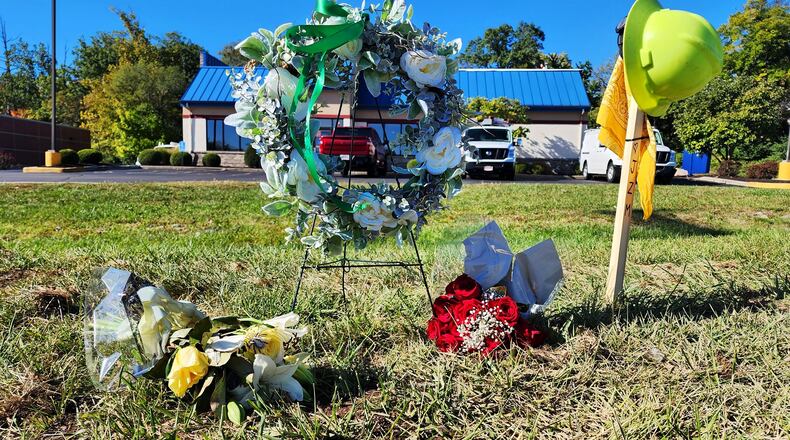Safety programs and initiatives are improving workplace conditions, but too many workers across the state continue to be injured, sickened and killed on the job every year due to events and exposure that can be avoided, state and labor officials say.
“To the families who have lost loved ones, we extend our deepest sympathies,” Jon Harvey, board director of the Ohio Bureau of Workers’ Compensation, said during the 14th annual Fallen Workers Memorial event held earlier this year. “Your loved ones’ contributions to our state will never be forgotten, and their sacrifices will forever be honored.”
Killed on the job
In 2023, Ohio recorded 164 workplace fatalities, which was up 7% from 2022, according to data released last month from the U.S. Bureau of Labor Statistics’ Census of Fatal Occupational Injuries.
Ohio’s fatal work injury rate was 3.1 fatalities per 100,000 full-time equivalent workers, which was a slight increase from 2022. Nineteen U.S. states had lower occupational fatal injury rates in 2023.
Zachary Bilinovich, 33, was killed in Beavercreek Twp. in February 2023 when equipment fell on him while he was putting together a square hay baler at a local dealer, state officials said.
William Skeens, 63, was fatally injured on Jan. 1, 2023, when he was pulled into a lathe at a machine shop in Springfield, says an inspection report by the Occupational Safety and Health Administration.
Shawn King, 53, died by drowning on Oct. 31, 2023, when a lawnmower overturned and went into a lake in Fairfield, pinning him underwater, says an OSHA report.
Jacob Moler, 25, was fatally struck by a tire roller while doing construction work along a highway in Hamilton on Oct. 3, 2023.
Jhon Cespedes Clavijo, 32, was crushed after he was caught between a floor scrubber and conveyor system in Union on March 15, 2023.
Other workplace deaths were caused by automobile crashes, burns, hydrogen sulfide gas exposure, and an overturned crane, as well as peer or customer violence. Multiple people died after falling from from high places, including an excavator bucket and a loading dock.
Not surprisingly, job-site deaths plunged in Ohio during the first year of COVID in 2020 (-30%), as many workplaces were shut down or working remotely. The workplace death toll rebounded the following year (+46%), then dropped 11% in 2022.
Workplace death counts typically fluctuate year-to-year in the Buckeye State. Since 1995, they have increased 13 times, decreased 14 times and remained the same in a couple of years.
Most workplace injuries and illnesses can be avoided with the right safety measures, state officials said.
Business owners, managers, employees, family members, unions, insurers and regulators all play a role in accident prevention, said Chan Cochran, board chair of the Ohio Bureau of Workers’ Compensation, during the Fallen Workers Memorial event in August.
“Let us advocate for stronger safety regulations, better training and a culture that prioritizes the health and safety of every worker,” said Harvey, BWC board director. “Every worker deserves to return home safely at the end of every day.”
Nonfatal incidents
In 2023, Ohio’s private employers also reported 84,800 nonfatal workplace injuries and illnesses, says data from the U.S. Bureau of Labor Statistics’ Survey of Occupational Injuries and Illnesses.
Ohio had 2.2 cases of non-deadly illnesses and injuries per 100 full-time equivalent workers. The national rate was 2.4 cases.
The Buckeye State saw a drop in the occupational injury and illness incidence rate from 2022 (2.3 cases). The same was true nationally (the rate fell from 2.7 cases in 2022).
The bureau said one reason for the decrease was a sharp decline in respiratory illnesses. COVID didn’t spread as much in 2023 as it did in the early years of the pandemic.
About the Author



